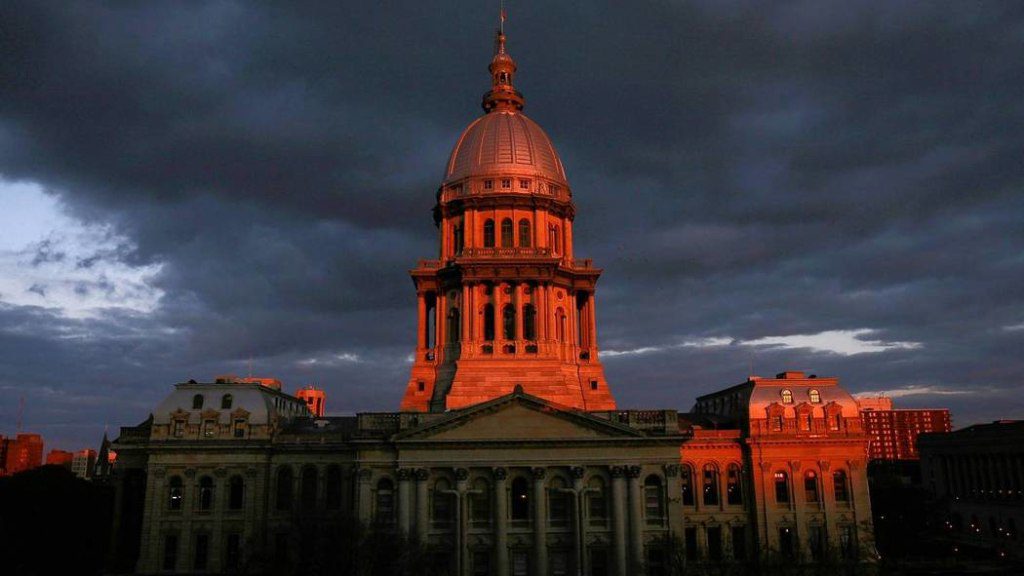🎧 Listen to This Article
The Civic Federation, a respected nonpartisan organization, has sparked discussion around fiscal reforms in Illinois with its recent report advocating for an expanded sales tax that encompasses services like haircuts, dry cleaning, and plumbing. This proposal comes just one week before Governor J.B. Pritzker is slated to unveil his highly anticipated budget proposal.
Although Illinois has made headway in fiscal stability, the road ahead remains steep. The report warns that by fiscal year 2026, the state will hit a pivotal moment, highlighting a projected General Funds budget deficit exceeding $3 billion. Furthermore, it predicts escalating deficits over the next five years.
The Civic Federation emphasizes the need to modernize the state’s sales tax framework to reflect current consumer spending trends, noting that nearly half of these expenditures are now directed toward services.
The Case for Tax Reform
Currently, Illinois’s sales tax system is primarily focused on goods, creating a significant gap in revenue potential from services. The Civic Federation argues that broadening the tax base could yield substantial benefits for both state finances and local consumers.
Implementing a sales tax on services alone is projected to generate an estimated $2 billion annually, a critical figure given Illinois’s immediate budgetary concerns. The state is facing a looming deficit of approximately $3.3 billion for the upcoming year, not accounting for additional spending requirements such as transit funding, pension enhancements, and support for education.
The proposal suggests that if Illinois maintains its current 5% sales tax rate while extending to specific services, it could soften the political blow of the changes. Importantly, the report recommends exempting business-to-business services from the sales tax to prevent complications that arise from “pyramiding,” where taxes accumulate at each stage of the supply chain.
Efforts to tax services have been a recurring theme in Illinois policymaking, often framed as a solution for boosting funding for education and public transportation. However, it is worth noting that Governor Pritzker has previously expressed reservations about this approach.
Addressing Pension Liabilities
Another critical area of concern involves the state’s pension obligations, particularly for government employees hired under the Tier 2 pension plan established in 2011.
This plan, aimed at alleviating the state’s ballooning long-term pension debt—which accounted for over $11 billion last year—has inadvertently created disparities in retirement security. As these benefits may contravene federal regulations, the Civic Federation suggests that Illinois should cautiously navigate reforms and enhance pension options only to meet compliance without incurring significant new liabilities.
Recommendations for a Sustainable Budget
The Civic Federation advocates for a comprehensive reassessment of tax credits and exemptions, as well as the potential elimination of numerous special funds that can restrict fiscal flexibility.
Their call for a systematic approach to budgeting urges Illinois to combat its entrenched structural deficit effectively. Despite acknowledging the progress made under Pritzker’s administration, the report emphasizes the necessity of a long-term strategic planning process to sustain fiscal health.
Illinois’s high overall tax burden, compounded by local property taxes, continues to impact both economic development and population retention. To elevate transparency regarding state budget processes, the report recommends enhancing public access to budgeting documents and legislative records.
Citizens should have clearer insights into how budgetary decisions affect their communities, fostering greater public trust and engagement.
Conclusion
The Civic Federation’s report is a significant step in addressing Illinois’s fiscal challenges. Its recommendations not only aim to broaden the state’s revenue base but also emphasize the importance of strategic planning and transparency in budgeting.
As Illinois navigates its financial future, these insights could prove crucial in ensuring a balanced approach to fiscal responsibility.
For further details, clarification, contributions or any concerns regarding this article, please feel free to reach out to us at editorial@tax.news. We value your feedback and are committed to providing accurate and timely information. Please note that all inquiries will be handled in accordance with our privacy policy
